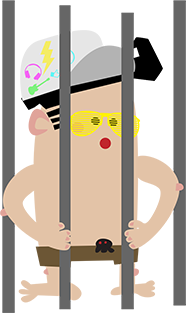In Tasmania, if you are under 18, it is against the law for you to buy alcohol. It is also against the law for anyone to sell you alcohol.
It is generally illegal to supply alcohol to people under 18, unless it is in a private property and the alcohol is supplied by a parent or guardian (or someone who your parent or guardian has told that they can give you alcohol), and that they are supervising you properly.
Supervising you properly means that they need to be aware of how old you are, how much you have had to drink and over what period of time you have been drinking; they need to also be aware that food should be available; and they need to be aware if you get drunk or not.
If you are drinking on private property, and something happens to you because you were not supervised properly, then your parent or guardian can be given a hefty fine or a given a jail term of up to 12 months in situations where the offence is deemed to be more serious.
(This is not the case throughout the rest of the Australian states and territories, where it can be completely illegal for anyone under 18 to drink alcohol).
You must be over the age of 18 to purchase alcohol or you and the seller can be charged or fined.
If you are over 18 and buy or give alcohol to someone under the age of 18 you can also be charged for supplying alcohol to a minor.
If you are under 18 it is also illegal to buy alcohol for someone else – for example, you cannot buy alcohol for your parents.
Licensed premises are public places that have been given a license by the government to sell or serve alcohol. These include bottle shops, pubs, bars, clubs, and some restaurants (called licensed restaurants).
If you are under 18, it is against the law for you to drink, buy, or be given alcohol on licensed premises. It doesn’t matter if you are with your parent or guardian or not.
You can use a proof of age card, your drivers licence or your passport as your identification (“ID”) to prove your age. If you don’t show ID when you are asked, or if you use a fake ID, you are breaking the law.
The term fake ID may refer to ID that doesn’t belong to you but is the ID of another person (such as your friend or your brother), as well as ID that has been altered or made illegally. It is illegal to make a fake ID, let someone else use your ID, or give false information in order to obtain ID.
Using a fake ID to gain entry to a venue serving alcohol or to purchase alcohol is illegal and can have serious consequences to both you and the venue – you can receive a large fine for using fake ID to gain entry to a licensed premises, and you may receive additional charges for alcohol offences (you could face even greater fines if the fake ID you used was someone else’s photo identification). The venue can be also fined a substantial amount for providing alcohol to a minor and could lose their liquor licence.
Never leave your drink unattended. Drink spiking (with drugs or alcohol) is illegal, but does take place. Where possible, you should watch your drink being made and never accept an opened drink from anyone you don’t know or trust.
Most places other than someone’s house are public places. They usually include:
- footpaths, roads, parks, beaches;
- shopping centres;
- unlicensed restaurants, cafes and dining areas (places that do not sell alcohol);
- community centres, halls and churches;
- theatres, libraries and galleries;
- public transport (buses, trains, trams, aeroplanes, taxis, ferries);
- gyms and sporting facilities;
- hospitals.
It is against the law for you to have alcohol, or drink alcohol, in a public place that is not licensed, regardless of your age. You can only have an open alcoholic drink in public if you are in a licensed venue or permitted area, and if you are over 18.
It’s important to know that if you walk down the street with an open alcohol container such as a can of beer, or you are drinking in a park or any other public space, you could be charged by police.


